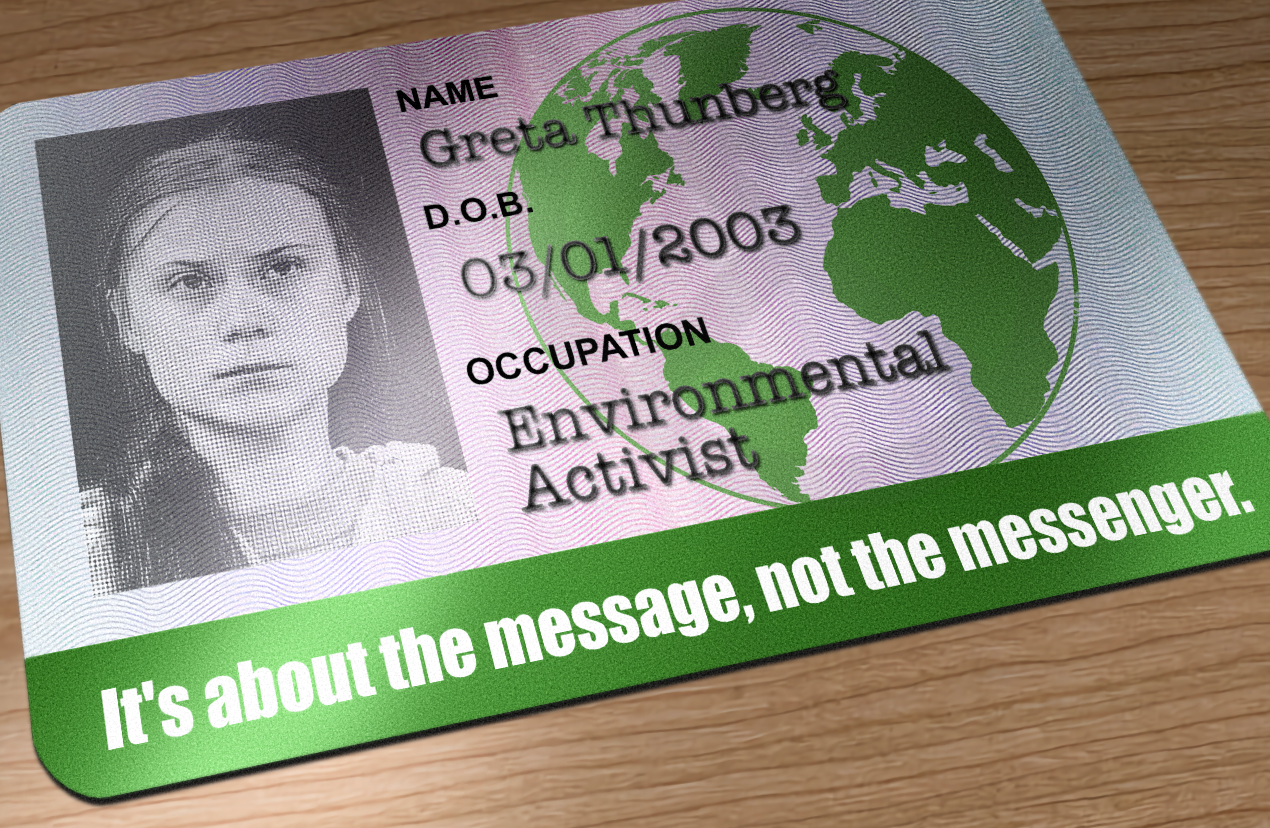greta, et al
the futility of trying to fix the fallout
For over half a century, millions of environmentally aware individuals, and hundreds of campaigning organisations have poured their energies into the fight for a sustainable future. Movements have risen, awareness has soared, and the understanding that ‘There is no planet B’ now echoes through classrooms, social media, parliaments, and even corporate boardrooms. Thanks to all those organisations like Friends of the Earth, WWF, Greenpeace, Earthjustice, Extinction Rebellion, and the unyielding clarity of voices like Greta Thunberg, everyone knows the planet is in crisis. And yet it’s getting worse. Not for lack of knowledge, nor for want of passion – but because we have mistaken the symptoms for the cause.
Global warming, the plastic-choked oceans, the factory-farmed hellscapes, the millions affected by war, the pollution, and billionaires flying into space – they are all the inevitable consequences of a system built on greed, ego, and denial. A system that rewards power, worships profit, and reduces humans to consumers, and citizens to spectators.
And yet, in our panic to undo the damage, we continue to approach the problem with the same attitudes that caused it. We campaign with anger, we vote for personalities, we consume ‘sustainably’ without questioning why consumption is the core currency of our lives, and at the same time we hope that technology will be our saviour.
‘Hope’ is nothing more than secular praying – a means to avoid doing something, when doing something is exactly what’s needed.
Activism, for all its courage and necessity, is largely reactionary. It exists within the dominant system, not beyond it. Even the most radical protests, if making demands of the existing structures of capitalism, politics, and identity, risk reinforcing the very foundations they claim to oppose. We’ve made crises fashionable: collapse is now a content category, every protest has a media strategy, every disaster a PR angle. Activism has been sanitised into something that just supports the status quo.

The hope that we might turn people from the primitive, selfish, short-termist, greedy, destructive organisms that we have been made into, by presenting the overwhelming evidence of our collective stupidity, is not a realistic plan. If it were, the crisis would have already been averted, but the situation is just getting worse.
Greta is right when she says we need to understand the problem. But it’s not just a list of plastic, pollution, greenhouse gas, melting glaciers, dying species, or rising sea levels – the problem is psychological, cultural, and civilisational. We are a species, hijacked by a system that moulds us to see life through the lens of ego, competition, and ownership. And now, we are unfit to manage ourselves, not because we are flawed by nature, but because we are shaped by a system that actively suppresses the traits that make us viable: empathy, reason, generosity, and cooperation.
To save the world, we must first unlearn what we’ve been made into.
Human beings evolved not to dominate, but to cooperate. Our survival depends on compassion, generosity, and equality. Buried under layers of contrived social programming and economic necessity, these traits still exist within us, but remain dormant because they are neither rewarded nor encouraged. Without reactivating this latent potential, every attempt to fix the world will be tainted by the dysfunction that caused it.
Fix us, and we fix the problem. Anything less is just damage control.
The world doesn’t need another policy, another conference, more strategies for carbon capture, or more technology. It needs a transformation of what it means to be human – something no system built on exploitation will ever offer. We need a species-level awakening that refuses to cooperate with the machinery of our own demise. Otherwise, we will march toward our own extinction in branded t-shirts, cheering for deluded leaders, live-streaming the event on devices made by slaves.
It’s not just about stopping the madness, but refusing to let the same minds and motivations that caused it decide what comes next.
